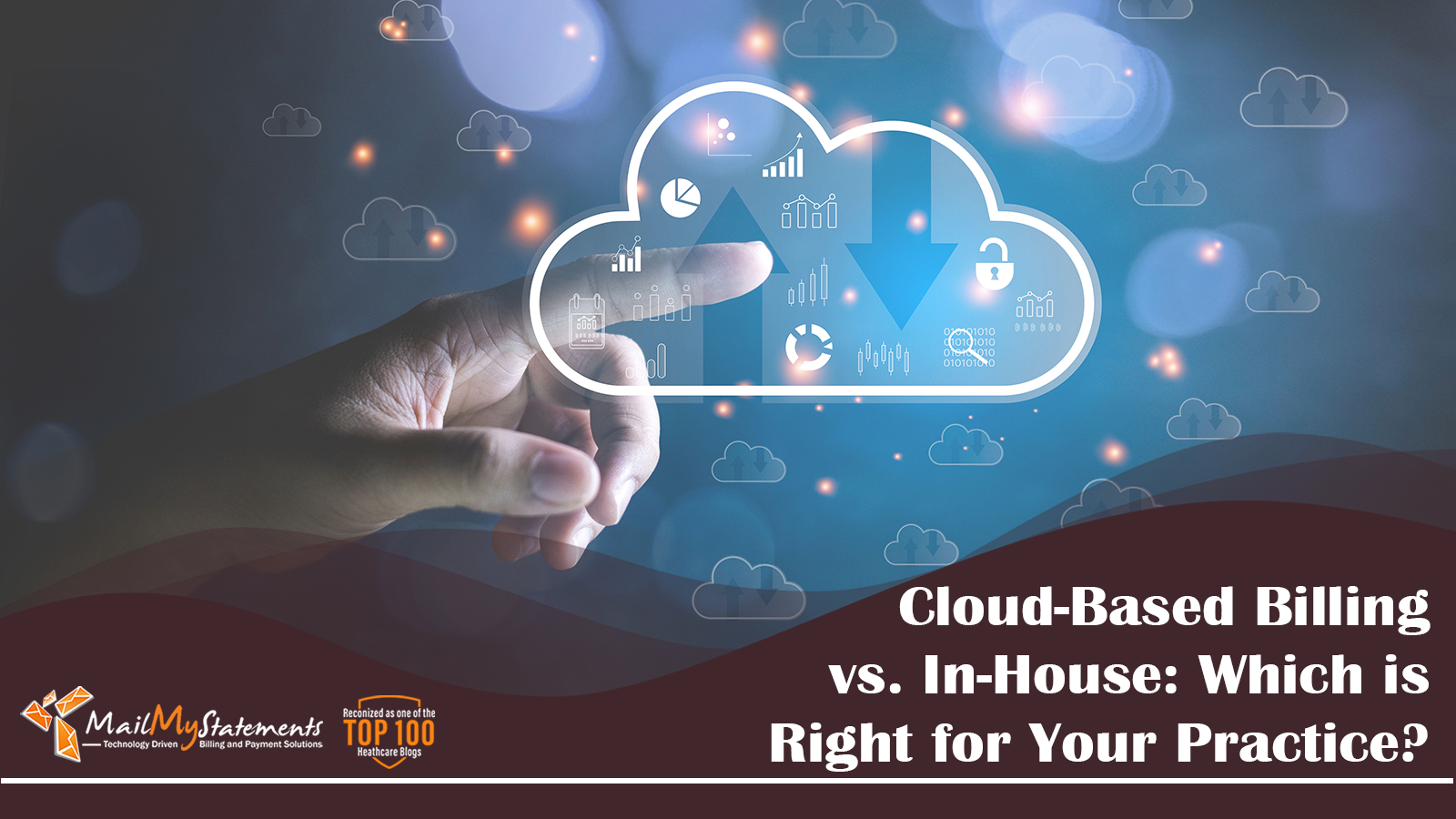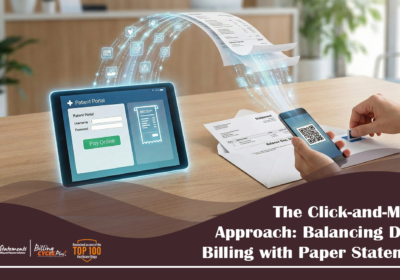Cloud-Based Patient Billing vs. In-House: Which is Right for Your Practice?

Cloud-based patient billing is a rapidly growing trend in the healthcare industry. This type of billing software boasts many advantages like running on remote servers and accessibility from any authorized device with an internet connection. Still, there are reasons many practices and healthcare systems maintain in-house billing. It’s important to understand the pros and cons of each option before deciding which system is the right choice for your needs.
What Is Cloud-Based Patient Billing?
Cloud-based patient billing stores, accesses, and manages all of a provider’s medical billing data on remote servers. Rather than needing to maintain a local server onsite or dedicated hardware, cloud-based data can be accessed from any location with an internet connection.
Because in-house billing requires local servers, it can only be used locally. This may not sound like an issue on its face, but the Covid pandemic demonstrated the utility of cloud-based systems for employees working from home.
A local server must be maintained onsite, either by an IT specialist employed at the practice or a third-party service provider, and a practice’s billing system must be regularly updated to stay abreast of current regulations and requirements.
In short, cloud-based billing systems are a means of outsourcing a billing platform, while in-house keeps the responsibility of maintaining billing systems within a practice or healthcare system.
Advantages of Cloud-Based Patient Billing
Here are some of the reasons more and more providers are switching to the cloud for medical billing.
Reduced Expenses
You’ll need to make an upfront investment when transitioning from an in-house billing system to the cloud. That said, you’ll easily recoup this investment as time goes on, and eventually, you’ll find that cloud-based billing costs less than maintaining an in-house system with on-premise upgrades, IT support, and insurance for disaster recovery and cyber liability.
Rather than unpredictable expenses from one month to the next—i.e., having to pay thousands of dollars for unexpected problems with an on-premise system—cloud-based billing offers transparent, predictable pricing that can be budgeted for each month.
Less Downtime
Cloud-based systems have an incentive to stay up and running, as their entire business relies on it. In fact, most cloud-based billing providers monitor their systems 24/7 to ensure uptime and swiftly address issues as they arise. This close monitoring minimizes technical problems and downtime—and when these issues do occur, it’s not your practice’s responsibility to fix them.
While a cloud-based system has teams dedicated to keeping their services up and running, you can’t say the same for an in-house system. Even large hospital systems with in-house IT support are subject to power outages and bugs, and in-house staff isn’t always available to address every issue as soon as it occurs.
More Opportunities for Automation
Artificial intelligence (AI) and machine learning are the subject of much debate, but when it comes to medical billing, there are very few downsides to implementing these technologies to free up your employees’ time for higher-level tasks.
Cloud-based systems have the resources to innovate and implement AI and machine learning tools, which expedite or even fully automate billing processes like filing claims and verifying insurance coverage.
In-house systems don’t typically have this level of automation because individual medical practices don’t have the resources or infrastructure to implement these technologies, or the price of doing so is cost prohibitive.
Better Data Analytics
Billing managers know that their jobs go far beyond simply making sure bills are sent and paid on time—it’s also about collecting, analyzing, and using data to improve the billing process and shorten revenue cycles. Cloud-based systems make it much easier to do this; not only do these systems collect data, they make it easy to make sense of this data to develop action plans. In contrast, if you’re using an in-house system, you may have difficulty analyzing your data, particularly if your system wasn’t designed with this use in mind.
Improved Security
Finally, cloud-based systems offer an added layer of security that is often lacking in in-house systems. Cloud providers are required to comply with HIPAA regulations and take additional steps to ensure their data is secure—again, they have an incentive to do this because their business is on the line if there are security breaches.
Smaller practices or healthcare systems may not be able to afford the latest security measures for their in-house systems, nor are they able to hire the necessary IT personnel to adequately monitor and protect their systems from cyber threats.
Advantages of In-House Billing
Not every practice wants to switch to the cloud yet, and that’s understandable. Here are some benefits of maintaining an in-house system.
Maintaining Control Over Data
In-house billing systems may offer more customization than cloud-based options. For specialized practices or providers with unique billing needs, having this kind of control over data can be critical. In other cases, specialized features may be available on the cloud, but only with additional fees.
Lower Risk for Data Breaches
Cloud-based systems have more security measures in place—but they’re also a bigger target. Hackers are more likely to attack a massive online billing platform with data from tens of thousands of patients than a single medical practice, even if that single medical practice has more lax security.
Familiarity
Sometimes, it’s worth it to keep an existing system in place because your team is familiar with it. Maybe the head of your billing department is planning on retiring in a few months; in that case, it could make more sense to migrate to the cloud in the future.
The Bottom Line
Cloud-based systems have become the go-to option for many healthcare providers, as they offer a range of advantages, from reduced expenses to more automation and improved security. If you’re looking to lower costs and make your billing operations more efficient, find out more about partnering with MailMyStatements today.
![]()



